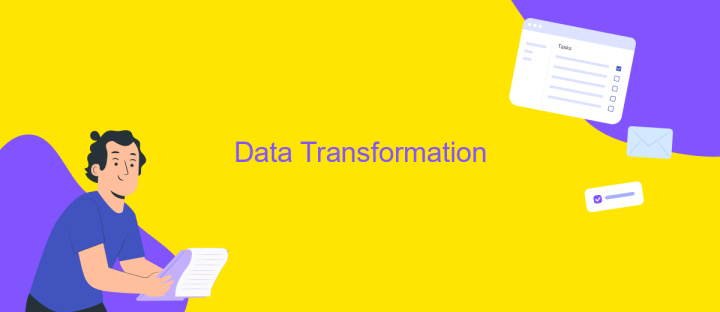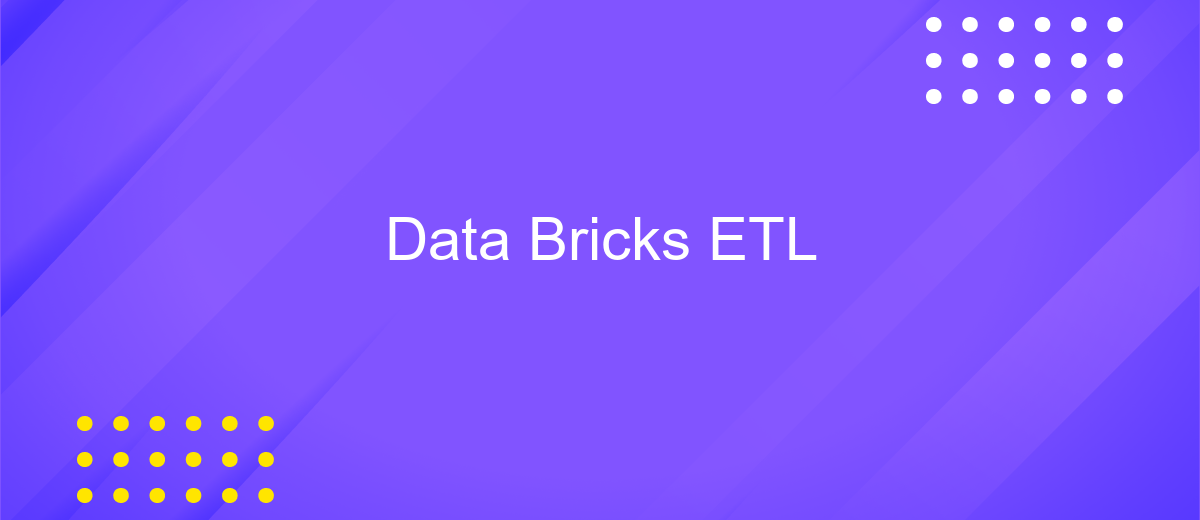Data Bricks ETL
Data Bricks ETL (Extract, Transform, Load) is revolutionizing the way organizations handle big data. By leveraging the power of Apache Spark, Data Bricks provides a unified analytics platform that simplifies data integration, transformation, and analysis. This article explores how Data Bricks ETL can streamline workflows, enhance data processing efficiency, and drive actionable insights for businesses of all sizes.
Introduction
Data Bricks ETL (Extract, Transform, Load) is a powerful solution for managing and processing large volumes of data. It enables organizations to streamline their data workflows, ensuring efficient data integration and transformation. By leveraging Data Bricks ETL, businesses can gain valuable insights and make data-driven decisions more effectively.
- Scalable data processing
- Seamless data integration
- Real-time data analytics
- Enhanced data quality
Integrating various data sources can be challenging, but services like ApiX-Drive simplify this process by providing automated data integration solutions. ApiX-Drive allows users to connect multiple applications and services, ensuring smooth data flow and reducing manual efforts. Utilizing such tools in conjunction with Data Bricks ETL can significantly enhance the efficiency and accuracy of your data management processes.
Data Ingestion

Data ingestion in the context of Databricks ETL involves the process of collecting and importing data from various sources into the Databricks environment for further processing and analysis. This step is crucial as it lays the foundation for any subsequent data transformation and analytics tasks. Databricks supports a wide array of data sources including cloud storage services like AWS S3, Azure Blob Storage, and Google Cloud Storage, as well as databases such as MySQL, PostgreSQL, and SQL Server. The platform provides different methods for data ingestion, including batch and streaming ingestion, allowing for flexibility depending on the use case.
To streamline the data ingestion process, Databricks integrates with various third-party services and tools. One such service is ApiX-Drive, which simplifies the task of setting up integrations and automating data transfers between different systems. ApiX-Drive offers a user-friendly interface and supports a multitude of connectors, making it easier to synchronize data from disparate sources into Databricks. By leveraging these integrations, businesses can ensure that their data ingestion pipelines are robust, efficient, and capable of handling large volumes of data with minimal manual intervention.
Data Transformation

Data transformation is a critical step in the ETL process, where raw data is converted into a format suitable for analysis. This step ensures that data is clean, consistent, and usable for downstream processes. In Data Bricks, data transformation can be efficiently handled using Apache Spark's powerful capabilities.
- Data Cleaning: Remove duplicates, handle missing values, and correct errors.
- Data Integration: Merge data from different sources, ensuring consistency and accuracy.
- Data Aggregation: Summarize data to provide meaningful insights, such as averages or totals.
- Data Enrichment: Enhance data by adding relevant information from external sources.
- Data Formatting: Convert data into the desired format, such as JSON, CSV, or Parquet.
To streamline the integration of various data sources, services like ApiX-Drive can be leveraged. ApiX-Drive automates the process of connecting and transferring data between different applications, making it easier to maintain data consistency and accuracy throughout the transformation process. With these tools, data transformation in Data Bricks becomes a seamless and efficient task, ensuring high-quality data for analysis and decision-making.
Data Warehousing

Data warehousing is a critical component of modern data management strategies, providing a centralized repository for storing and analyzing large volumes of data. It enables organizations to consolidate data from various sources, ensuring data integrity and consistency. By leveraging data warehouses, businesses can perform complex queries and generate insights that drive informed decision-making.
One of the key benefits of data warehousing is its ability to support ETL (Extract, Transform, Load) processes. ETL tools extract data from different sources, transform it into a suitable format, and load it into the data warehouse. This ensures that the data is clean, accurate, and ready for analysis. Efficient ETL processes are essential for maintaining the quality and reliability of the data stored in the warehouse.
- Centralized data storage
- Improved data quality and consistency
- Enhanced data analysis and reporting capabilities
- Scalability to handle large data volumes
Integrating various data sources into a data warehouse can be challenging. Services like ApiX-Drive simplify this process by offering seamless integration capabilities. ApiX-Drive allows businesses to connect multiple data sources, automate data transfers, and ensure that the data is always up-to-date. This integration service enhances the efficiency of data warehousing operations and supports better data-driven decision-making.
- Automate the work of an online store or landing
- Empower through integration
- Don't spend money on programmers and integrators
- Save time by automating routine tasks
Data Analytics
Data analytics within the Data Bricks ETL framework enables organizations to derive actionable insights from vast amounts of data. By leveraging the power of distributed computing, Data Bricks ensures that data processing is both efficient and scalable. This allows data scientists and analysts to perform complex transformations, aggregations, and analyses in a fraction of the time compared to traditional methods.
Integrating various data sources is crucial for comprehensive analytics, and tools like ApiX-Drive can streamline this process. ApiX-Drive facilitates seamless integration between disparate systems, ensuring that data flows smoothly into the Data Bricks environment. This not only reduces the time and effort required to set up integrations but also enhances data accuracy and consistency, enabling more reliable analytical outcomes. With these capabilities, organizations can make data-driven decisions faster and with greater confidence.
FAQ
What is Databricks ETL?
How does Databricks handle data transformation?
Can Databricks ETL be automated?
How do you integrate Databricks with other data sources?
What are the benefits of using Databricks for ETL?
Time is the most valuable resource for business today. Almost half of it is wasted on routine tasks. Your employees are constantly forced to perform monotonous tasks that are difficult to classify as important and specialized. You can leave everything as it is by hiring additional employees, or you can automate most of the business processes using the ApiX-Drive online connector to get rid of unnecessary time and money expenses once and for all. The choice is yours!


